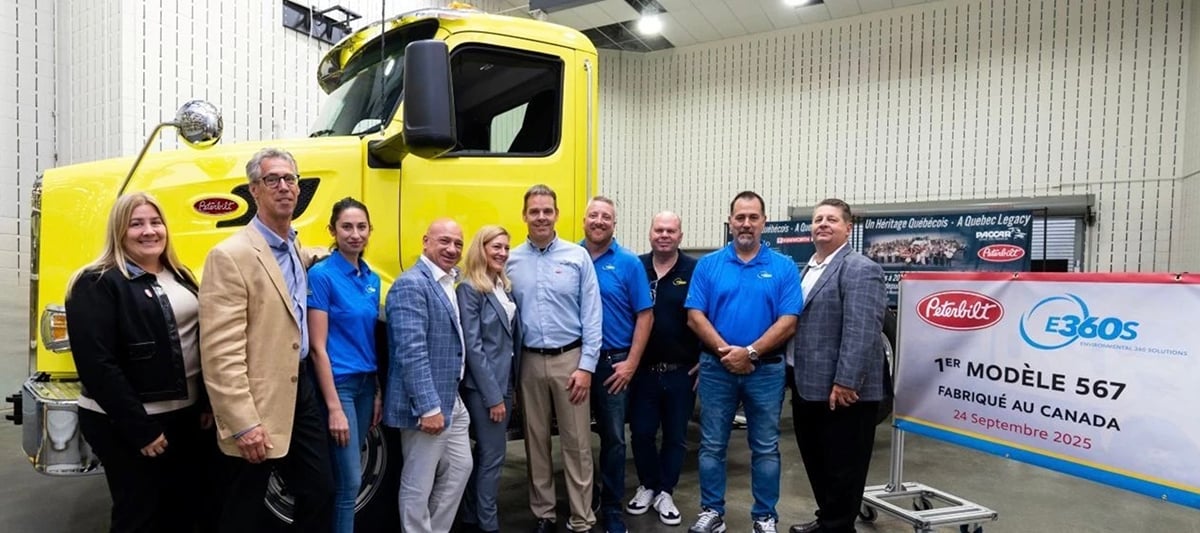KINCARDINE, Ont. – Ben Lobb, a 32-year-old Conservative candidate, has a political milestone in sight as he campaigns in the Huron-Bruce riding north of London.
In 2006, the area gained attention as the last primarily agricultural riding won by the Liberals west of New Brunswick.
Veteran Liberal MP Paul Steckle, now retired, held onto the seat by fewer than 1,000 votes.![]()
Elsewhere in Ontario’s 40 or so rural seats, Conservative blue ruled, giving the Conservatives their minority government.
Read Also

Equipment manufacturing may return to Canada
Some ag equipment and automotive manufacturers are now adjusting their production and distribution to avoid tariff costs in relation to supplying the Canadian market.
“I totally believe we can win the riding this time,” said Lobb, who also ran in 2006. “Obviously, Paul Steckle was a popular guy with a track record and he is no longer in the race. I think it leaves a lot of people out there considering a move to a new political home.”
Greg McClinchey, for 15 years an aide to Steckle, is running hard to keep the vast agricultural riding Liberal red.
“I just don’t believe this government has been good for farmers nor has it kept the promises it made,” said the 33-year-old on a break from campaigning.
“I believe voters will consider the gap between promises versus results and recognize they were misled.”
As in rural ridings across Ontario, the issues range from the soaring price of inputs and worries about fuel costs to the meltdown in the livestock sector and the search for higher-valued niche markets or value-added products.
The intense battle in Huron-Bruce, a riding with an agricultural economy larger than any single Atlantic Canada province, mirrors the battle across seat-rich rural Ontario.
In the 1980s, it was Conservative country but through the 1990s, the Liberals won virtually all Ontario seats with the several score rural seats being the difference between defeat and three consecutive majorities for the Liberals. Through the 2004 and 2006 elections, all but one of the rural Ontario seats returned to the Conservative fold, making up one-third of Stephen Harper’s seat count that allowed him to form a minority government in 2006.
This time, Conservative candidates like Michael Chong in Wellington-Halton Hills north of Guelph say the rural mood is better for the Conservatives than it was in 2006.
“We have kept our promise to improve safety nets and to get rid of CAIS (Canadian Agricultural Income Stabilization). We have listened, grain prices are higher and supply management farmers are less anxious now that WTO (World Trade Organization) negotiations are off,” he said.
“I sense the mood is much, much better.”
His riding holds an estimated 3,000 farms.
In Diane Finley’s rural Haldimand-Norfolk riding south of Hamilton, she says the Liberal carbon tax is a dead weight around Liberal candidates’ necks.
“It would devastate this riding with higher food and input prices and I have yet to meet a farmer who supports it,” the citizenship and immigration minister said.
Liberals, of course, see it differently.
Finley’s Liberal opponent, Eric Hoskins, insists that once he explains the carbon tax is just one part of the Green Shift plan and that there are benefits for farmers, while the Conservatives are hiding the impact of their environmental plans, “people are willing to consider it.”
In the Brant riding north of Hald-imand-Norfolk, incumbent two-term Liberal Lloyd St. Armand said he believes the Conservatives are vulnerable in rural Ontario because they have not met the high expectations they raised.
“I don’t think a deep analysis of (prime minister Stephen) Harper’s record would demonstrate a good result for farmers,” he said. “But the last two elections have seen the Conservatives claim most of rural Ontario.
“This election will illustrate whether or not it was a real change in the political landscape.”
For his part, University of Waterloo historian and former Liberal MP John English suggested there is little reason to expect rural Ontario voters to return to the Liberals this time.
“I just don’t see any basis to expect a real change from last time, although a few seats may be in play,” English said.
Yet Ontario Federation of Agriculture vice-president Don McCabe said no party should assume ownership of the rural vote.
“Rural folks are looking for leadership and vision,” he said.
“Never mind the promises. Get her done. It is very prudent to say that neither party should take the rural vote for granted.”
Last week, Harper appealed to rural voters with a promise that a re-elected Conservative government would lower the excise tax on diesel from four cents to two cents per litre over the next four-year term, a promise he said would cost the government $600 million annually in lower tax revenue.














